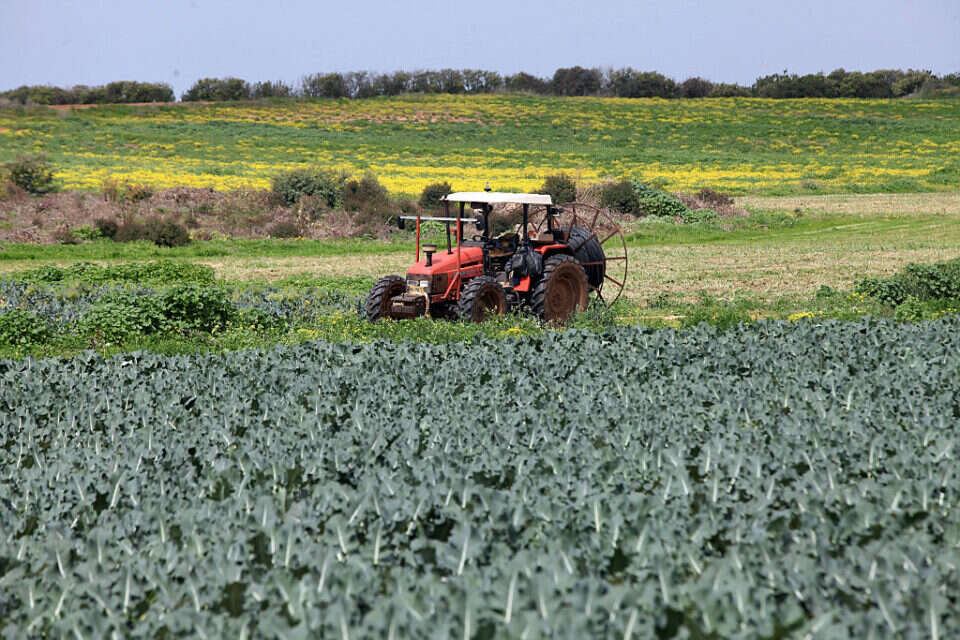Tonight (between Sunday and Monday) the storm "Carmel" is expected to arrive in Israel, which will be one of the hardest to hit here recently.
Temperatures are expected to drop considerably, a lot of rain has fallen, especially on the coastal plain, and after that there will also be quite a bit of damage, which will be reflected in both floods and agriculture.
The damage to agriculture, if indeed significant, may cause, among other things, a long chain reaction of goods that will be destroyed and thrown away, and will even lead to a shortage of product with high demand and accordingly also a rise in price.
We spoke with Itamar Levy, an agronomist at Tranis, a company that operates in the field of precision agriculture, and asked him to put things in order.
What types of foods does it affect the most?
It seems that the storm will affect to some extent all the crops that are in the country, but especially those that have just been sown, and are still 'weak' and not planted enough in the soil.
Which crops are most vulnerable?
In general, the varieties that exist today are those that undergo some sort of genetic engineering and are therefore more resistant to rain or moisture.
Therefore, extreme storms that once destroyed entire-season fields and crops have less impact today.
However, the storm is severe and it is not normal rain, and apparently still observed crop damage.
The most vulnerable crops are the field crops in the group of winter crops, among which the most vulnerable and important at the economic level are the various wheat varieties sown in recent weeks in Israel.
Compared to the United States, for example, Israel and the Mediterranean countries have an advantage in everything that can grow in the winter.
Agricultural field // Photo: Liron Moldovan,
Additional crops such as broccoli, cauliflower and other winter crops will be more durable because of their growth nature (eating young buds or roots like carrots that are less affected by strong winds for example, compared to wheat grains that have a long time to be exposed to vulnerability.
For example, only last week in many places in the country winter wheat was sown, with among the seeds are wild wheat varieties and ancient wheat varieties from seed collections kept in the genetic bank - that is, these are quite rare but more durable varieties, which will lead to moderate damage.
In general, the rains help the wheat to grow and yield good crops, but global warming, which will also bring the approaching storm, will bring with them a massive flooding of the fields that will cause irreversible damage and damage these crops.
Is there anything to do?
Today, we know how to predict what the weather is going to be like, and know to say on what days an extreme storm is going to approach us, so we can monitor the condition of the crops and present relevant insights and procedures to preserve the crops and try to save them even after they are damaged.
The fact that tools can be used to monitor in real time and identify which areas in the field have been damaged and to what extent, allows us to assess the economic damage caused to farmers, but also provide information on areas in the field that require spot treatment such as re-sowing, additional fertilization or other treatments.
Since the weather is not under our control, we can only prepare in advance, and schedule the crops more accurately for the forecast.
In addition, the fact that agriculture is becoming an increasingly smart field, allows the soil and fields to be monitored so that the farmer can get a future picture of the field condition throughout the season, and can use this data to properly prepare for upcoming crops or weather.
Taranis operates in the field of precision agriculture, and has developed technology that combines photography from satellites, skimmers and light aircraft and using artificial intelligence.
It also manages to scan huge areas of agricultural fields, locate spot problems - thus optimizing the crop, avoiding over-fertilization and reducing the waste of agricultural produce.
Were we wrong?
Fixed!
If you found an error in the article, we'll be happy for you to share it with us

